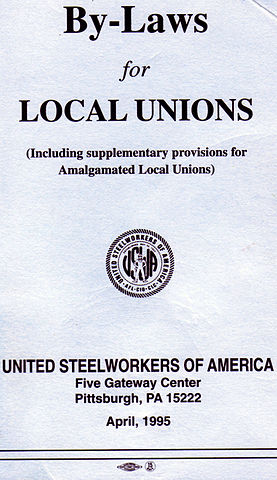Constitution vs Bylaws
Constitution and Bylaws are two terms or words that are often confused as words that denote the same meaning, when strictly speaking, there is a difference between them as they have different meanings. The word constitution refers to a kind of document that is created on behalf of a group of people or an organization, which establishes factors such as qualification, eligibility of membership, duties, do’s and don’ts of the members and the like. In short, it can be said a constitution defines the rules and regulations to be followed by the members of an organization. On the other hand, bylaws refer to the rules and regulations to be followed on a daily basis. It is important to know that bylaws govern the day to day functions of institutions or organizations. This is the main difference between the two words, namely, constitution and bylaws.
What is Constitution?
Constitution is the main document of an organization that determines the fundamental aspects of the said organization. These fundamentals of the organization are matters such as the organization name, purpose, membership, officers, meetings, rules of procedure, and amendments. As you can see, these are the basic elements on which an organization is created.
So, the constitution should consist of fundamentals that are not going to be changed. If you are going to change every single detail of a constitution very often, it is not a proper constitution. Much thought is put into constructing a constitution and as you can see once such a constitution needs changes you have to follow the amendment rules stated there. Most of the time you have to have the majority (2/3) votes to amend the constitution. This may be very easy sometimes in a small organization. However, once you go the national level to the constitution of a country, you getting the majority votes to amend the constitution is not at all easy.

What are Bylaws?
Bylaws are based on the constitution of an organization. Bylaws determine the detailed guidelines of the fundamental aspects of the organization and also states the daily work of the organization. This section consists of matters such as duties of officers, duties of advisor, committees, impeachment, elections, finance, and amendments.
Bylaws should be constructed with the ability to change them. This does not mean you can change anything even in bylaws as you just think. You still have to follow the amendment rules regarding bylaws, which will follow the pattern of the constitution. However, bylaws have the ability to be changed easily. For example, with time the organization can change; it can grow. At such a situation, sometimes, the duties of the president can be more complex. You have to change that accordingly.
As you can see, the constitution just puts the structure of the organization. Bylaws fill this structure with filling. For example, when it comes to officers, the constitution only talks about the titles, qualifications, method of electing officers, filling vacancies, and the term of each officer. The most important aspects of the duties of each officer as well as the way to remove officers are included in the bylaws. That is because those parts are what is important to the day to day actions of an organization.

What is the difference between Constitution and Bylaws?
• Definition of Constitution and Bylaws:
• Constitution is the main document of an organization that determines the fundamental aspects of the said organization.
• Bylaws determine the detailed guidelines of the fundamental aspects of the organization and also states the daily work of the organization.
• Connection:
• Bylaws are based on the constitution. So, bylaws are governed by the constitution.
• Ability to Change:
• The constitution should consist of fundamentals that are not going to be changed.
• Bylaws should be constructed with the ability to change them.
• Specific Nature:
• Since the constitution is covering the fundamental aspects of the organization, this can be sometimes not very specific.
• Bylaws are more specific.
These are the differences between a constitution and bylaws. Though they are two different documents, remember that they are related to each other. Without a constitution, there will be no bylaws. Both are essential for the functions of an organization.
Images Courtesy:
ncG1vNJzZmivp6x7pbXFn5yrnZ6YsqOx07CcnqZemLyue8OinZ%2Bdopq7pLGMm5ytr5Wau26vzqeqraGkqsGqu81mmKecXavAbq7YpZiwq18%3D